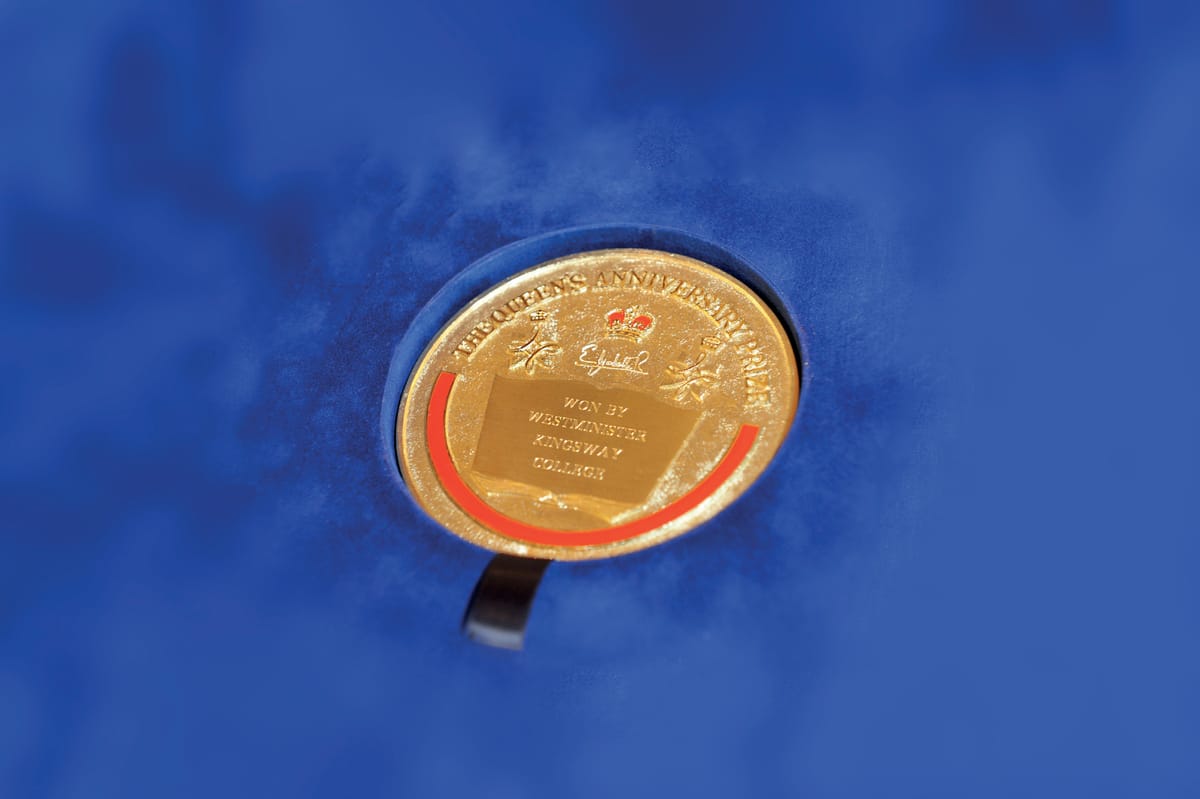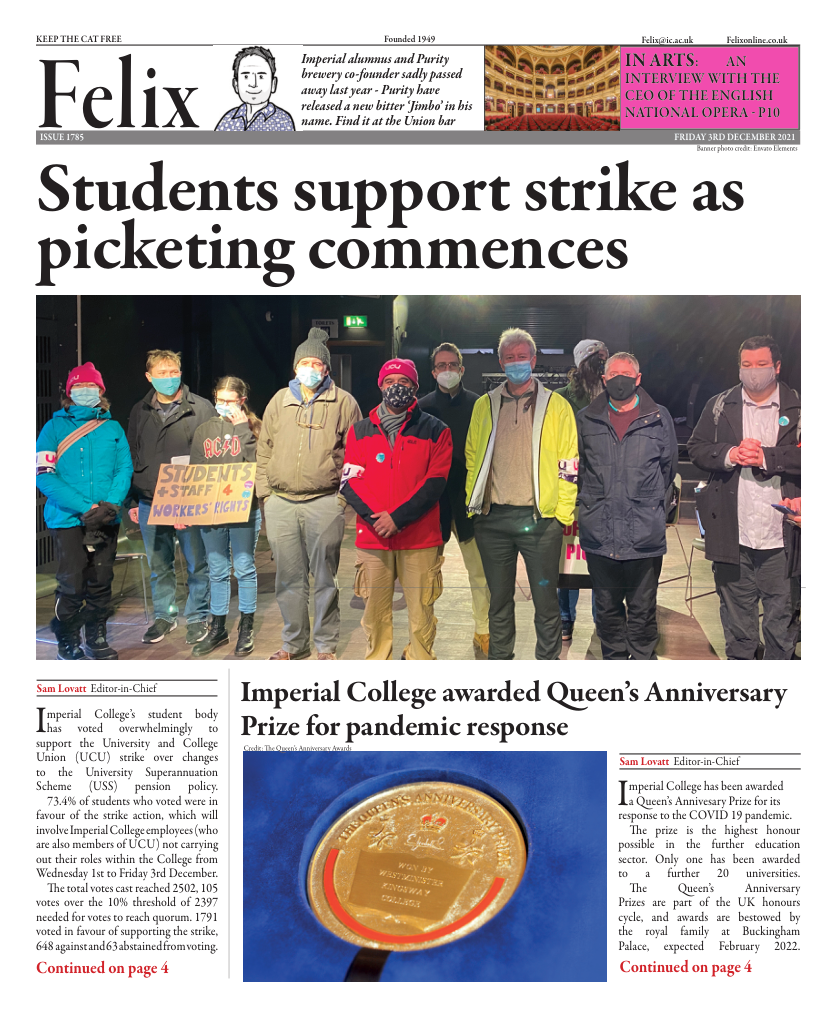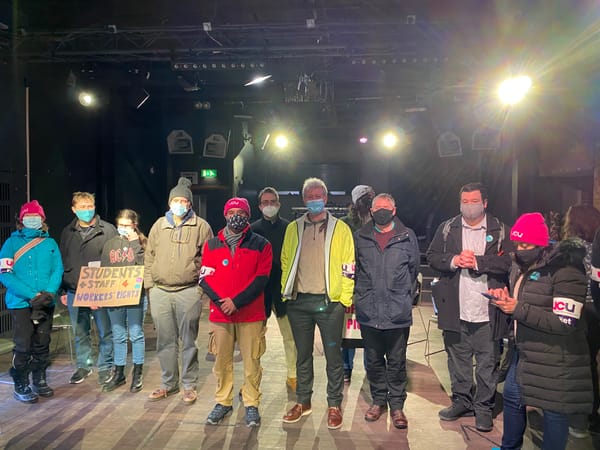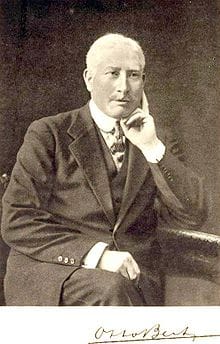Imperial College awarded Queen’s Anniversary Prize for pandemic response
“World-class expertise in data modelling and real-time analysis, supporting a holistic response to Covid-19 in [the] UK and internationally”

Imperial College has been awarded a Queen’s Anniversary Prize for its response to the COVID 19 pandemic.
The prize is the highest honour possible in the further education sector. Only one has been awarded to a further 20 universities.
The Queen’s Anniversary Prizes are part of the UK honours cycle, and awards are bestowed by the royal family at Buckingham Palace, expected February 2022.
On Imperial College, the charity said “World-class expertise in data modelling and real-time analysis, supporting a holistic response to Covid-19 in UK and internationally” [sic].
President Alice Gast said of the award “The resilience, ingenuity and unwavering dedication of our community in response to the pandemic has been astonishing. From modelling disease spread to building PPE for healthcare workers, our brilliant colleagues, students and alumni have been on the front lines at every stage of the pandemic and continue to be. At the same time, we pivoted fast to develop new hybrid-learning initiatives that would continue to deliver the world-class education our students deserve during national lockdowns. I am proud to accept this honour, which is a fitting testament to the hard work of our entire community”.
References to the switch to hybrid learning allude to Imperial College winning the Sunday Times University of the Year 2022 title in September.
The prize website states that “further information on each entry will be available in due course” and does not elaborate on the above. The Imperial College News site, however, had a good crack at guessing why the prize was awarded.
The COVID 19 Response Team was founded at the College in January 2020, shortly after the emergence of SARS-CoV-2 as a novel coronavirus. The Team greatly influenced government decision making and led to the unfortunate conception of the nickname “Professor Lockdown” for our own Professor Neil Ferguson.
Professors Wendy Barclay, Charles Bangham and Neil Ferguson all remain in the Scientific Advisory Group for Emergencies (SAGE) according to the government website.
The College has also carried out 15 major clinical trials into COVID 19 treatments, as well as leading the REACT study which looked at the virus’s spread across the population.
They add that the College set its own testing facilities which allowed 5,000 daily tests for Imperial staff and students. Regular sampling on public transport in the areas around the College was also carried out to check prevelance of the virus in the immediate area.








